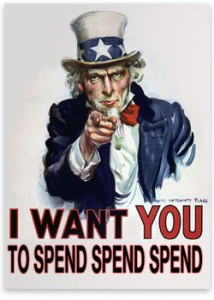Recently on NPR I listened to a report of a billboard advertisement near the Lincoln Tunnel in New York. It depicted a nativity scene, a star and three wise men with the message: “You know it’s a myth,” courtesy of a group called American Atheists. Not to be outdone there is now another billboard sponsored by a religious organization with the same scene but with the message: “You know it’s real.” I am not sure what these competing billboards cost, but I am certain the money could have been put to better use.
What is it about this season that leads many believers and unbelievers into an unofficial war on Christmas? There is more than a little debate concerning what we should call Christmas in the public. Do you own a Christmas tree or a Holiday tree? Do you wish your friends, even those that are not even Christian, merry Christmas or Seasons Greetings?
When you think about it, this is really not new. In the days of the Second World War Americans were scribbling on cards, and scrawling on storefronts the words “Merry X-Mas.” It has sort of fallen out of vogue to use that abbreviation because it sounds as though we are dropping the Christ out of Christmas.
But maybe what we are seeing today is different. After all, it seems far more intentional, more contrived to rename our trees, our customs so that Christmas is dropped in favor of more sanitized names. So children in the public school are out on Winter holidays instead of Christmas holidays; soldiers are depicted in the media wishing “Seasons Greetings” instead of Merry Christmas.
I confess: I am a bit perturbed, irritated, even insulted that my traditions have been co-opted. But on the other hand, who am I to question how another organization or business chooses to recognize this time of year. When you think about it, what is more offensive: that public and commercial entities are dropping the word Christmas from their various promotions and celebrations or that Christmas has now been reduced to a free for all of consumption and materialism. Just look at what happened in retail stores throughout this country the day after Thanksgiving: tempers out of control, pushing, shoving and even fights breaking out. All of this goes on for a day that historically reminds us of the one who was born homeless, lived in poverty and died having the very clothes on his back taken from him.
Thank God that Luke remembered. Luke remembered to tell us: “And it came to pass in those days, that there went out a decree from Caesar Augustus, that all the world should be taxed.” It may not sound like much, but Luke was saying the same thing Charles Dickens said one hundred years ago in his book Tale of Two Cities: “It was the best of times and the worst of times.” It was the worst of times because Herod was a monster and ruled like he was God. It was the worst of times. The people of Israel were not worried about bargain priced plasma screen televisions or being stuck in holiday traffic. They were worried about their survival.
But Luke also says it was also the best of times. He shares it with one simple verse: And she brought forth her firstborn son, and wrapped him in swaddling clothes, and laid him in a manger; because there was no room for them in the inn.
If all we do is feel righteous indignation because someone else wants to rename our customs, our traditions, then we have succumbed to the culture itself. Think of all those who missed the message two thousand years ago: Herod, the religious leaders – scribes, priests – none were there that night. They were caught up in their commerce; they were caught up in their power; they were caught up in the masses of people who passed right by the stable on that starry, starry night.
A few, however, heard, and traveled, and saw, and left with their lives never to be the same again.


Recent Comments